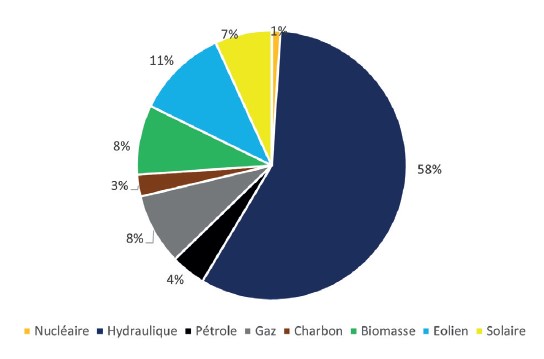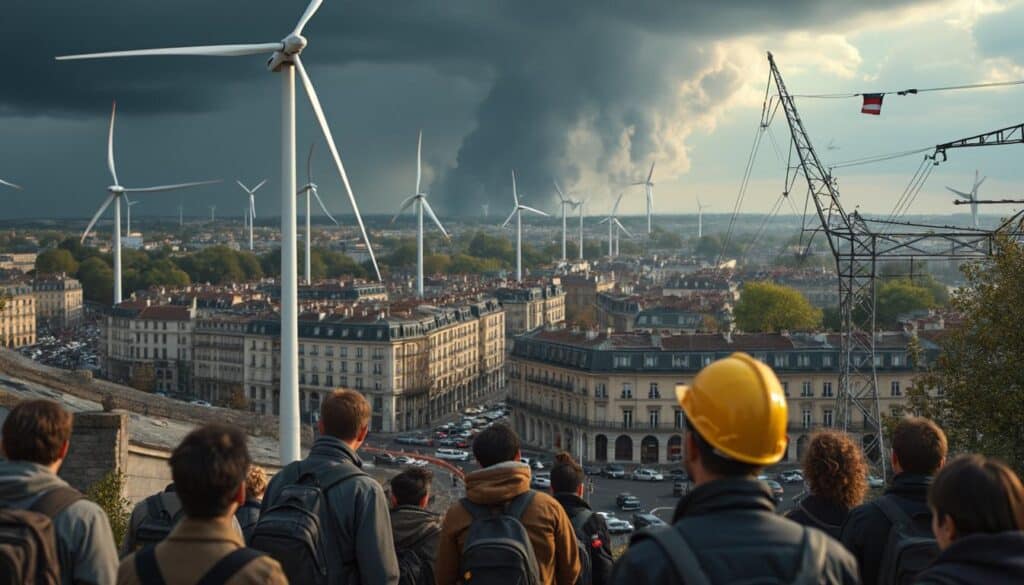In Brazil, a country once perceived as a champion of renewable energies, the management of the electrical grid has become a major obstacle for the production of wind and solar energy. The restrictions imposed by the grid operator are hindering the growth of these energy sources, putting many sustainable future projects at risk. This situation leads to a decrease in energy efficiency and compromises the country’s environmental commitments.

Brazil, well known for its vast renewable energy resources, faces a major challenge as its electrical grid limits the production of electricity from wind and solar sources. This situation threatens not only the growth of the renewable energy sector but also local initiatives aimed at reducing dependence on fossil fuels and promoting sustainable development.
The Brazilian electrical grid: an obstacle for renewable energies
Despite its efforts in green energies, the Brazilian electrical grid encounters technical limitations that affect the country’s ability to integrate more wind and solar production. The problem mainly lies in the grid infrastructure, which is not always capable of managing the intermittency and varying volume of energy produced by these sources. These technical constraints have led to frequent cases of curtailment of production, where excess green energy is simply wasted.
Impact on wind and solar energy projects
The limitations of the grid have a direct impact on new wind and solar energy projects. Many projects are being put on hold or outright canceled due to uncertainties related to distribution capacity. These delays and cancellations compromise the country’s investments and environmental goals. For example, companies like Voltalia, which had planned renewable energy projects in northeastern Brazil, had to revise their expectations due to the current limits of the grid.
The economic and environmental consequences
The limitation of wind and solar energy production not only impacts specific projects but also the Brazilian economy and the fight against climate change. Increased dependence on imported energy sources, especially during periods of drought affecting hydroelectric power, poses a major risk to the country’s economic and energy stability. Furthermore, the limited growth of renewable energy slows the reduction of greenhouse gas emissions, compromising Brazil’s international climate commitments.
Solutions for a more resilient electrical grid
To overcome these challenges, it is crucial for Brazil to invest more in improving its electrical infrastructure. This includes enhancing transmission and distribution networks, integrating energy storage technologies, and modernizing the grid to better manage the variability of renewable energies. Meanwhile, additional supportive policies and favorable regulations can encourage innovation and attract private investments in the sector.
The limitation of wind and solar energy production by the Brazilian electrical grid represents a major hindrance to the development of renewable energies in the country. It is imperative to adopt adequate measures to modernize the grid and ensure a sustainable energy transition. By investing in infrastructure and pushing for political reforms, Brazil can not only achieve its environmental goals but also ensure a more resilient and independent energy economy.
Energies renouvelables : le stockage de la production va devenir clé https://t.co/ED2Fw2I3yd
— La Tribune (@LaTribune) June 18, 2024
Articles similaires
Thank you!
We will contact you soon.














